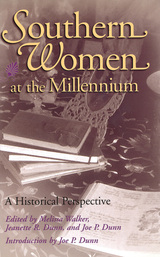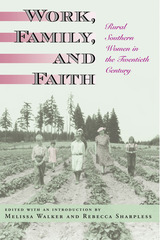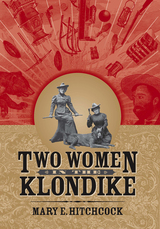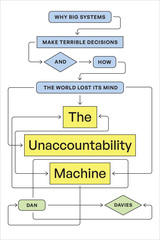3 books about Walker, Melissa

Service as Mandate
How American Land-Grant Universities Shaped the Modern World, 1920–2015
Edited by Alan I Marcus
University of Alabama Press, 2015
Established by the Morrill Land-Grant College Act of 1862, America’s land-grant universities have had far-reaching influences on the United States and the world. Service as Mandate, Alan I Marcus’s second edited collection of insightful essays about land-grant universities, explores how these universities have adapted to meet the challenges of the past sixty-five years and how, having done so, they have helped to create the modern world.
From their founding, land-grant schools have provided educational opportunities to millions, producing many of the nation’s scientific, technical, and agricultural leaders and spawning countless technological and agricultural innovations. Nevertheless, their history has not always been smooth or without controversy or setbacks. These vital centers of learning and research have in fact been redefined and reconceptualized many times and today bear only a cursory resemblance to their original incarnations.
The thirteen essays in this collection explore such themes as the emphasis on food science and home economics, the country life movement, the evolution of a public research system, the rise of aerospace engineering, the effects of the GI Bill, the teaching of military science, the sustainable agriculture movement, and the development of golf-turf science. Woven together, these expertly curated scenes, vignettes, and episodes powerfully illustrate these institutions’ ability to flex and adapt to serve the educational needs of an ever-changing American citizenry.
By dint of their mission to remedy social, economic, and technical problems; to improve standards of living; and to enhance the quality of life, land-grant universities are destined and intended to be agents of change—a role that finds them at times both celebrated and hotly contested, even vilified. A readable and fascinating exploration of land-grant universities, Service as Mandate offers a vital exploration of these dynamic institutions to educators, policy makers, students, and the wider communities that land-grant universities serve.
From their founding, land-grant schools have provided educational opportunities to millions, producing many of the nation’s scientific, technical, and agricultural leaders and spawning countless technological and agricultural innovations. Nevertheless, their history has not always been smooth or without controversy or setbacks. These vital centers of learning and research have in fact been redefined and reconceptualized many times and today bear only a cursory resemblance to their original incarnations.
The thirteen essays in this collection explore such themes as the emphasis on food science and home economics, the country life movement, the evolution of a public research system, the rise of aerospace engineering, the effects of the GI Bill, the teaching of military science, the sustainable agriculture movement, and the development of golf-turf science. Woven together, these expertly curated scenes, vignettes, and episodes powerfully illustrate these institutions’ ability to flex and adapt to serve the educational needs of an ever-changing American citizenry.
By dint of their mission to remedy social, economic, and technical problems; to improve standards of living; and to enhance the quality of life, land-grant universities are destined and intended to be agents of change—a role that finds them at times both celebrated and hotly contested, even vilified. A readable and fascinating exploration of land-grant universities, Service as Mandate offers a vital exploration of these dynamic institutions to educators, policy makers, students, and the wider communities that land-grant universities serve.
[more]

Southern Women at the Millennium
A Historical Perspective
Edited by Melissa Walker, Jeanette R. Dunn, & Joe P. Dunn, & Intro by Joe P. Dunn
University of Missouri Press, 2003
This collection of essays by eight scholars of southern women’s history traces the evolution of southern women’s lives during the twentieth century. Throughout this era, southern life, and in particular the opportunities for southern women, changed dramatically as southern women have taken leadership roles in business, government, education, and social programs.
The essayists employ a variety of approaches, ranging from case studies to historical overviews, but they all carefully place the developments in southern women’s lives in a national context. Most important, each author seeks to understand the nature of change in these women’s lives over the last century and to forecast the course of their lives in the future.
The first effort to synthesize research on southern women during this period, this collection will be useful to both scholars and students of southern history. Students will be provided with an introduction to women’s involvement in many areas of southern society, while scholars will appreciate the essays as a guide to new directions for research.
[more]

Work, Family, and Faith
Rural Southern Women in the Twentieth Century
Edited & Intro by Melissa Walker & Rebecca Sharpless
University of Missouri Press, 2006
At the beginning of the twentieth century, the majority of rural southerners were dependent on agriculture and eked out a living as tenants on land owned by someone else. Women took on multiple duties, from child rearing to labor in the fields, to help meet their own goals of independence, well-being, and family persistence on the land. Over the course of the century, however, women found their lives and their work transformed. Government intervention, the Great Depression, and industrial job opportunities created by the two world wars and the development of Sun Belt industries lured or pushed tens of thousands of black and white rural southerners off the land.
As the American South changed around them, becoming more urban and industrialized, some women struggled to help their families survive in the increasingly large-scale and commercial agricultural economy, while other women eagerly seized opportunities to engage in rural reform, get better educations, and work at off-farm jobs. Whether they moved to the cities or stayed on the farms, most of these women continued to struggle against poverty and relied on tradition and inner strength to get by.
This well-researched, sharply focused, and keenly insightful collection of essays takes readers across the twentieth-century South, from rural roadside stands to tobacco fields to Sloss-Sheffield Steel’s “Sloss Quarters” in Birmingham. Covering the full scope of southern rural women’s varied lives, this book will be of particular value to anyone interested in sociology, women’s studies, or southern history.
As the American South changed around them, becoming more urban and industrialized, some women struggled to help their families survive in the increasingly large-scale and commercial agricultural economy, while other women eagerly seized opportunities to engage in rural reform, get better educations, and work at off-farm jobs. Whether they moved to the cities or stayed on the farms, most of these women continued to struggle against poverty and relied on tradition and inner strength to get by.
This well-researched, sharply focused, and keenly insightful collection of essays takes readers across the twentieth-century South, from rural roadside stands to tobacco fields to Sloss-Sheffield Steel’s “Sloss Quarters” in Birmingham. Covering the full scope of southern rural women’s varied lives, this book will be of particular value to anyone interested in sociology, women’s studies, or southern history.
[more]
READERS
Browse our collection.
PUBLISHERS
See BiblioVault's publisher services.
STUDENT SERVICES
Files for college accessibility offices.
UChicago Accessibility Resources
home | accessibility | search | about | contact us
BiblioVault ® 2001 - 2025
The University of Chicago Press









